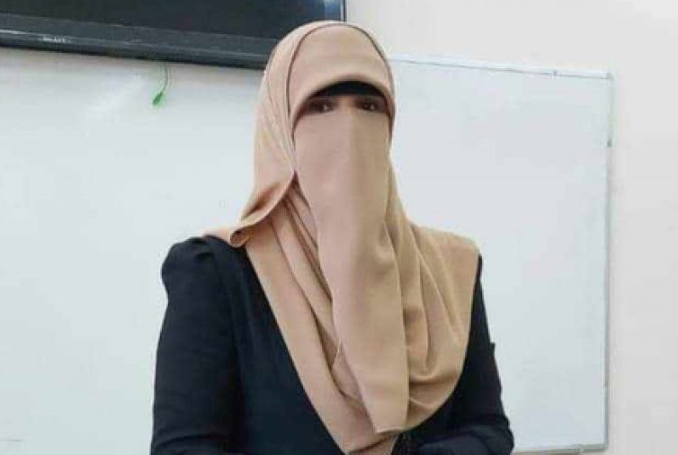
EDITOR’S NOTE: What follows is a tribute to Wafa Aludaini, a journalist who was killed together with her husband and two children by an Israeli military strike on her house in Deir Al Balah in central Gaza last week. She follows the stream of Palestinians journalists targeted and killed – 174 at the time of writing – by Israeli warplanes since the war on the Strip begun after 7 October 2023. The tribute is by Romana Rubeo, managing editor of the Palestinian Chronicle, who writes of how Wafa came to report for the chronicle and how the relationship between the two developed over the years.
On July 29, 2018, I received an email from a young journalist from Gaza, Wafa Aludaini, with the subject line: “I was looking at the sniper when he shot me – The story of an injured mother during the Great March of Return.”
It was the first time Wafa had reached out to us, but I was immediately struck by the power of her story, which she wanted to publish in the Palestine Chronicle.
Her approach to journalism was exactly what we were seeking – centering the voices of ordinary Palestinians, whose struggle and resilience reflected the collective resilience of the Palestinian people.
Her writing was a direct and raw narrative emanating from the heart of the Palestinian experience, told in the voice of the people, untainted by stereotypes or a lingering sense of victimization.
Wafa’s writing captured the essence of why we do what we do on a daily basis for years: amplifying Palestinian voices, and not any voices, but those that reflect the spirit of the Palestinian people, their defiance of injustice, their quest for freedom, and their courage in word and action.
Wafa seemed to exemplify all of this.
Of course, we published the story, and soon after, Wafa and I developed a deep connection, a friendship.
As I got to know her more, I discovered that Wafa was not just a storyteller – she was the story.
“I am a journalist,” she told us in an interview I conducted with her along with our chief editor, Ramzy Baroud, “but I am also a Palestinian refugee.” That identity was critical to her relationship to the Palestinian struggle.
Our bond grew over time, built on mutual respect, and shared insights into our professional and personal lives: our work, her children, and her weekly trips to the ‘frontline’ of the Great March of Return.
Every Friday, wearing her press vest – a symbol of protection from violence almost everywhere in the world, but not in Gaza – she would head to the fence that separates besieged Gaza from Israel. There, she found the stories of her people, and communicated them daily with poise and courage.
Wafa’s perspective as a woman was significant. Not only was she an empowered journalist, but she also empowered other women by giving them a platform to share their voices.
She was the founder of the October 16th group and dedicated her time to mentoring young media professionals in Gaza, especially emphasizing the importance of truth in reporting.
I, along with other editors of the Palestine Chronicle, had the privilege of working with her and her students and colleagues, where we conducted seminars for young women in Gaza. These women, inspired by Wafa, were determined to tell their own stories, in their own voice and language. Even when they spoke in weak English, somehow their narrative remained powerful.
One moment in particular stays with me. During the war in 2021, I invited Wafa to participate in an episode of an Italian podcast.
Amid the ongoing Israeli airstrikes, Wafa spoke live from Gaza. The roar of Israeli fighter jets was relentless, and though the audience couldn’t see her, they could hear her children huddled close to her.
She spoke calmly and firmly, her voice unwavering, exposing the reality of life under bombardment. Between pauses, she would turn to her children and quietly reassure them, saying, “Shhh, it’s just fireworks.”
Tragically, at dawn on Monday, September 30, those same children, two of Wafa’s beloved, were killed alongside her and her husband in an Israeli airstrike on Deir Al-Balah, in the central Gaza Strip.
Wafa was more than a journalist; she was a symbol of resilience. As a woman, a mother, a journalist, and a voice for the Palestinian people, she embodied their struggle for justice and dignity.
At the Palestine Chronicle, we are forever grateful for the opportunity to work with someone as courageous and inspiring as Wafa.
We will continue to honor Wafa’s memory by upholding her commitment to truth and will strive to carry forward her legacy of empowering voices that deserve to be heard.
We also intend to carry on with her mission, of training young women in Gaza so that they, like Wafa, may tell the stories of their people, in their own voices.
It turned out that some angels don’t have wings. We will miss you, Wafa. I already do.











